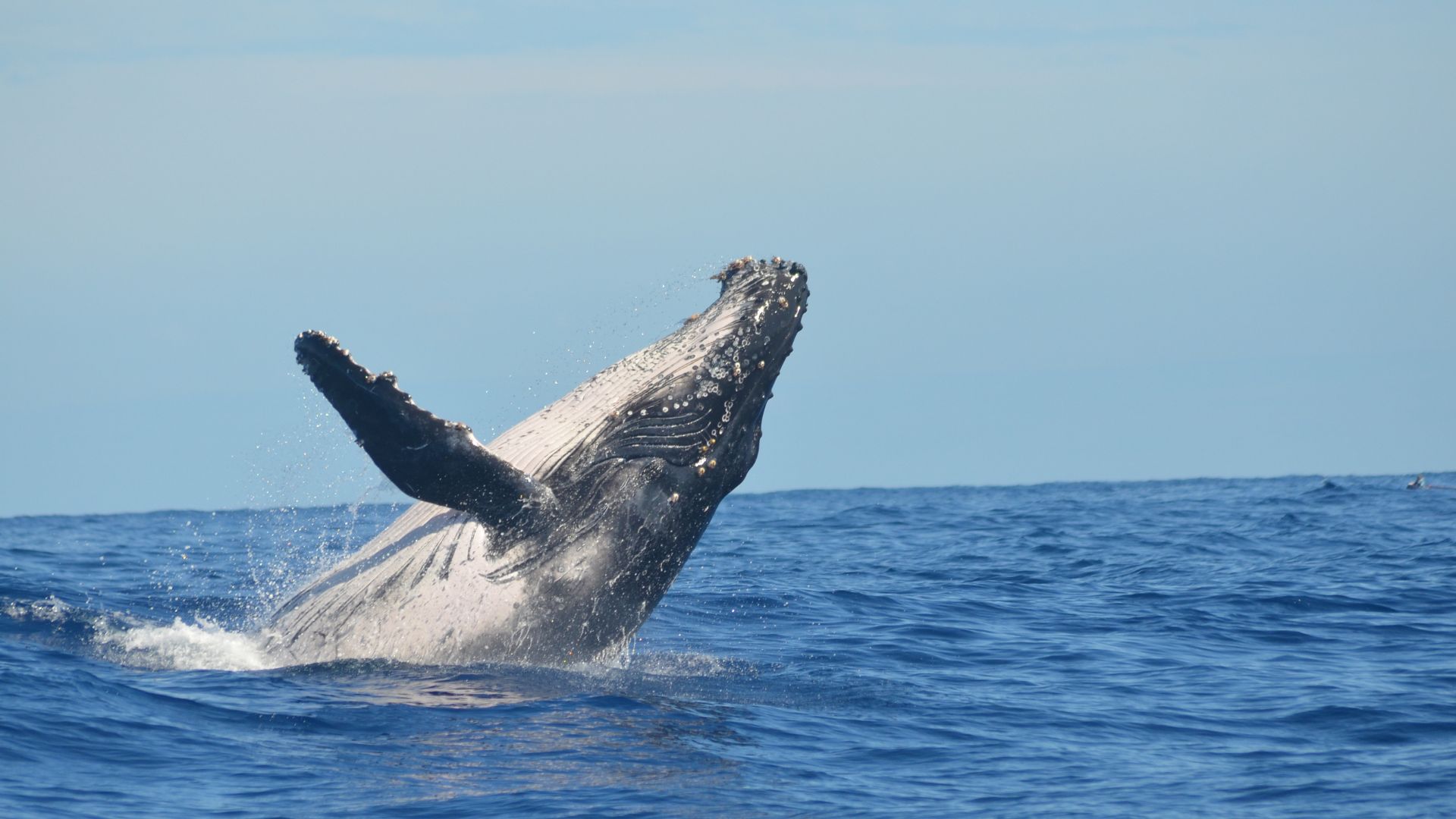In an interview with La Repubblica, Professor Maria Cristina Fossi, the scientific coordinator of the MIRAMAR project, warns about the high levels of contamination found in fin whales in the Mediterranean.
Not even the open sea is safe. In an interview published this week in the Italian newspaper La Repubblica, Professor Fossi, Chair of Ecology and Ecotoxicology at the University of Siena and Scientific Coordinator of the European Interreg Euro-MED MIRAMAR project, issues this warning. In the interview, Fossi presents the alarming results of a recent study which revealed the presence of next-generation pollutants in the tissues of fin whales (Balaenoptera physalus) in the Mediterranean Sea — a species already classified as endangered by the IUCN.
The study, published in the scientific journal Environmental Science & Technology, is pioneering in its use of exposome techniques combined with gene expression analysis in cetaceans through non-lethal skin biopsies. Samples were collected in the Mediterranean and the Sea of Cortez (Mexico), enabling researchers to trace the chemical compounds to which an organism is exposed over its lifetime.
The toxic cocktail includes drugs, plastics and nicotine
The findings are stark: 21 different pharmaceutical compounds (such as paracetamol and diclofenac), nicotine, UV filters, phthalates, and PFAS (perfluoroalkyl substances, which are virtually indestructible) were found to be accumulated in the whales’ tissues.
“It’s a complex chemical cocktail that highlights the magnitude of contamination in pelagic environments,” explains Fossi.
The most alarming aspect is not only the presence of these substances, many of which are widely used in pharmaceuticals and cosmetics, but also their toxic effects, including changes in endocrine receptors, inflammatory processes and metabolic dysfunctions. These effects directly compromise the health and reproductive capacity of the whales.

Whales as sentinels of the Mediterranean
According to Fossi, these results reinforce the idea that whales are sentinel species that indicate the state of marine health.
“Even though they live far from the coast, they are not immune to human impact,” she stresses. The message is clear: chemical pollution does not stop at the beach or in urban coastal areas — it spreads across the entire marine ecosystem, affecting even its most remote inhabitants.
The professor also highlights the importance of increasing scientific monitoring in offshore waters, which are “less monitored and less regulated“.
This line of research aligns with the goals of the MIRAMAR project (Monitoring Cumulative Impact to Guide Mitigation and Restoration in the Mediterranean Region), which is co-funded by the Interreg Euro-MED programme.
Coordinated by the University of Siena, the project involves 21 partners, including beneficiaries and associated organisations, and works to identify, monitor and mitigate the cumulative effects of environmental stress in vulnerable Mediterranean ecosystems, such as seagrass meadows, wetlands and habitats of threatened species.
“The health of the sea is the health of the planet — and of ourselves,” insists Fossi. “The pollutants we find in whale tissues are the same substances we use every day. We need to realise that everything we consume eventually makes its way back to the sea.”
MIRAMAR uses monitoring tools, applied science, governance and capacity building to develop science-based solutions tailored to the Mediterranean context.
Data, such as that provided by Fossi’s study, is essential for shaping effective policies and raising public awareness of the urgent need to reduce the human impact on marine ecosystems.
“The pollutants we find in whale tissues are the same substances we use every day. We need to realise that everything we consume eventually makes its way back to the sea.”


